#brother cadfael
Text
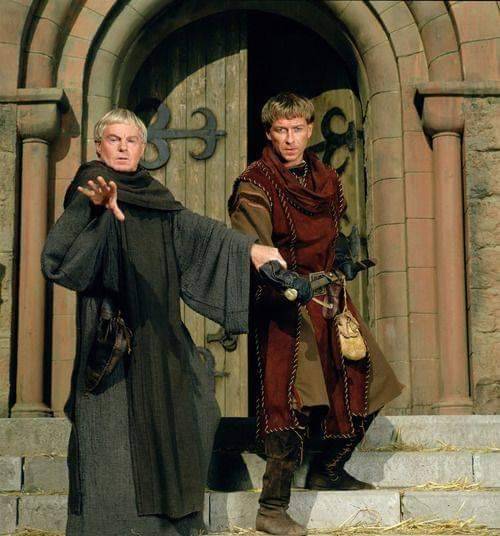
Sir Derek Jacobi as the retired Crusader Knight come Benedictine Brother, Cadfael. Jacobi actually had his hair shaved into a tonsure during filming, instead of wearing a bald cap wig. Some actors felt that was a little too far; others had their own heads shaved.
Beside Sean Pertwee as Sheriff Hugh Beringar.
Great series of stories based on the novels written by the linguist-scholar Edith Pargeter (1913–1995) under the name "Ellis Peters."
In my family we always watched Cadfael on Christmas Eve. A) because it was on the local PBS station and B) because it had a monk and was therefore deemed Christmas adjacent. That it was also usually a murder mystery was just extra fun.
80 notes
·
View notes
Text
The stratification (in marketing at least) between "grimdark" crime fiction (inc books) and "cosy" crime fiction grates on me sometimes, because I like nothing that's at either extreme. I don't want relentless pain (and I find both organised crime and serial killer plots pretty boring unless they're really well-handled), and I don't want cheerfully callous "ooh, the bodies are piling up! how inconvenient! have another slice of Victoria sponge!".
I want humanity and compassion and humour and treating deaths like they do actually matter even when they're of awful people, thank-you-so-very-much. I want the satisfaction of a puzzle solved. I want an awareness by the author that yes the human fascination with murder mysteries (going right right back to Oedipus Tyrannus etc.) is kind of odd, while also not apologising for it. I want characters I warm to and care about, even if I sometimes want to throw things at them. I want a predictable structure to some extent, because it helps my autistic brain when I'm having a rough time (see also romances!). If at all possible I like at least some awareness that there is structural oppression in the world and that capital punishment is Not Great even if by the very nature of the genre (especially in police procedurals) I never expect murder mysteries to have the same politics or morality as me[1].
Some of the murder mysteries/crime fiction I do really love: the Cadfael books, Endeavour, the Lord Peter Wimsey books, the Ruth Galloway mysteries, the Discworld Watch books, the Ian Rutledge mysteries, and every time KJ Charles or T Kingfisher get a bit murder mystery on us. And so on and so forth. There are a good number! And a fair variety in tone in all of these they just... still all operate in that blessed middle space between grimdark and cosy, and involve Caring About People, and I just wish there were even more. <3
(Do recommend your own favourites if you wish!)
[1] In real life, I am very much of the opinion that ACAB, that prison is a horror, that capital punishment is one of the greatest evils there is, and that retributive justice in general is wrong and unhelpful; those views affect which murder mysteries I like and how I read/watch/listen to them to some extent but, well, fiction is not reality. And being aware of that gap helps me to keep true to my views while still enjoying stories that go very much the other way!
#the cadfael mysteries#itv endeavour#lord peter wimsey#brother cadfael#ruth galloway#elly griffiths#sam vimes#gnu terry pratchett#kj charles#t kingfisher#ian rutledge
41 notes
·
View notes
Note
I know this is out of the blue, but seeing you are fan of the Cadfael novels, I had to say this.
Reading Cadfael chronicles after reading Name of the Rose and PIllars of the Earth REALLY made me glad how much the novels focus on regular life in Shrewsbury and aren't so obsessed with nobles while treating those lower as unwashed masses.
There is a sense of normalcy in the books I wish more medieval fiction had.
Hello! I'm intrigued by the ask (and I always enjoy discussing the Cadfael books) but I'm a bit puzzled by the implied juxtaposition. For one thing, The Name of the Rose obviously isn't about nobles; it's about a monastery, and the intellectual debates therein. So the men in the book are in a minority because of their education and their vocation, but statistically, most of them are from peasant backgrounds. And personally, I've never read Eco as sharing Adso's confused condescension to the nameless girl (oh, Adso.)
Also, The Pillars of the Earth... while I have no absence of quibbles with it, at least it does have a socially diverse and interesting cast. One of them is an odd hermit woman (truly why authors decide that pagan hermits were everywhere in the 12th century based on Vibes is a mystery to me) but at least there are urban tradespeople and peasants and monks galore. There are also some Scheming Nobles™, but much of the time, what they're scheming about is a dispute over quarry rights with the nearby monastery! Which is actually pretty representative! Also the wool trade exists!
So: yes, more medieval slice-of-life historical fiction forever, and I agree that the Cadfael novels are a charming example of this, but... I think the other books you've mentioned also come a lot closer to this than many others.
#historical fiction#fun with medievalism#asks and answers#brother cadfael#the name of the rose#the pillars of the earth
27 notes
·
View notes
Text
I'm not even remotely religious in any way, but I am begging people who are going to write about a character going into a monastery/nunnery whatever to please, please, please read some of the Cadfael Chronicles before you cast an entire population of people as fire-and-brimstone, self-mutilating, repressed, fanatical zealots.
For the uninitiated, the Cadfael Chronicles was a long series of medieval-set (specifically set in the 12th century) murder mysteries where the gumshoe role is taken by a monk who is well into middle age, a skilled herbalist and a former soldier and sailor who joined the Order late in his life (which for one, did happen!).
Now, there are some dated things about the writing that bears some examining; Ellis Peters (psued for Edith Pargeter) first started writing then in the late seventies (the last book was published 1994, a year before her death), and while she was a fantastic amateur self-taught scholar (she was so good she got an honorary degree from Birmingham University, having never even been to any higher education than high school) she is writing about the time of the Crusades and the Crusaders who invaded Jerusalem and she doesn't really delve that deep into the implications of her characters being involved in that, even though the characters are portrayed as the good guys, especially the titular one. But it's very possible most of the scholarship she had available for research at the time was all Western perspectives, which, you know, history is written by the winners, etc. She has a writers bias towards her protagonist, so of course he is framed fairly glowingly, though not without flaw.
But whether she had a view on the moral implications of the Crusades or not, the way she wrote medieval Britain and medieval Wales is absolutely textually fascinating because she doesn't flinch away from the fact that yes, Britain at this time was a feudal serfdom with slaves included, and was hard on marginalized people, chock full of patriarchy that did affect the lives of her female characters or that the Church was a big landowner themselves, and there was plenty of political tension and violence due to an ongoing civil war, but nonetheless the town the Chronicles are set in and the monastery where Cadfael lives is portrayed as a community.
Seriously. They don't just pray and whip themselves for 'bad thoughts'. The monks can be funny, snarky, and shy, and ambitious. They can be irreverent - yes, even about God, that thing that they are meant to be the most reverent about. They can have petty rivalries, they can annoy one another, even the Abbot, and not be sent for a backbreaking penance. They aren't thumping on bibles and telling people that if they don't make the cut that they're going to burn in hell.
They care. They take care of the children left in their charge, whether they're rich scions there to get an education or some poor thing left on their doorstep. One monk, in charge of the children, expresses real and genuine concern over a new novice that is having horrific dreams, worried that he has suffered a tremendous hidden trauma (he's right) and they're all concerned about what they can do to help him. A pair of teenagers literally fuck on one of the altars and the reaction from Cadfael is rueful amusement at young people's folly, not disgust or anger. They collect alms for the poor, redistribute everything given to them to help people survive. They crack jokes and show each other kindness and...
... look, I'm not saying that there weren't and still aren't zealots in religion. No religion is really innocent of that. And yeah, those zealots have done some pretty heinous things when they're put in charge - see Witch Burnings, Various Inquisitions, Crusades, Terrorism, etc. But I do wish writers wouldn't write about religious life like everyone who ever entered it was either a complete bag of bible-thumping assholes or just miserable all the time.
For one thing, that's really boring. Religion is a way we can tell stories about the complex reality we live in and the rules we think are important when dealing with other people. To reduce all that potential down to Miserable, Repressed, Self-Harming, Witch Hunting Jerks is intellectually lazy at best.
For another thing, you are losing the opportunity to portray a fundamentally queer experience. I don't mean they were all fucking (although some of the proscriptions that they felt the need to write down would rise your eyebrows - hand holding was apparently banned at one point); I meant that this was a group of people that took themselves out of the amatonormative status quo entirely and dedicated themselves to something that wasn't marriage, children, mercantile endeavors or anything 'normal' like that. That was, at the very least, a queer experience with clear queerplatonic overtones (not to mention, there were FTM trans monks that literally went on to sainthood, chosen gender kept intact).
And also? It just isn't historically accurate. Plenty of men and women actively chose a life outside the norm because they wanted to serve god and the community. They're just a group of people, all living together, making space for one another, all trying to serve people in whatever way they can. These people were less raging witch-burners and more Jedi without the lightsaber.
In the Cadfael books, they have brushes with zealots and they're reviled as bad guys every time. One (in the very first book) more or less fakes a whole-ass vision to manipulate the order to go to Wales and try and acquire a Welsh saint's bones and ends up doing even worse things because he believes he is destined for greatness and will get it by whatever means necessary. The head of the mission (who edges close to zealot territory himself and fully buys into the con for his own benefit) tries to buy the saints relics and causes a massive diplomatic incident as a result of this insult that makes him look like an idiot.
The other zealot that gives them trouble is a priest appointed to run the church. This man is as big a bible thumping, hellfire and brimstone dickhead as you might always picture a medieval priest to be and he is uniformly despised by both the monks and the township at large because his zealotry and strict adherence to only the letter of religious law and nothing else actively harms the community.
He's so hated, in fact, that when he (spoilers) dies, the reactions of all and sundry is mostly just relief that he's gone.
The Catholic Church has a lot of sins that it forgets more than it reckons with, but that doesn't mean that life in a monastery was all hair shirts and self-mortification, every abbot a little dictator. People have lived just fine in small communes for a lot of human history and they didn't all have small-minded tyrants continually cracking the whip. Most of them didn't.
I know it's an easy shaft to mine angst from, shoving people into an oppressive environment that they must either endure or overcome. And yes, the way we write about religion is sometimes a product of working through a complicated and traumatic relationship with it. I'm not trying to say any writer can't or shouldn't write that because your art is always supposed to be about putting parts of yourself out there, about telling the world a story about how you see it; and if you're working through something, if you need to tell a story about the scars that zealotry absolutely have and do leave, go for it, more power to you. That's a story that should and must be told.
But if your character is going into a monastery, try to remember that humans are social creatures. We make friends more than we make enemies. Even under intense tyranny, we make allegiances and form bonds and find ways to make the world were in a little bit more bearable wherever we can. And we tend to show each other compassion and mercy, even when we don't always like each other. It's true today, and it was true then too.
Monastic life was a queer experience that happened right under the noses of the dominant power structures for centuries. I think there's a story or two to be mined from that as well.
#writing#worldbuilding#character building#medieval history#religion#nicolo di genova#the old guard#brother cadfael#ellis peters#queerness#m#monasticism#monastic life
17 notes
·
View notes
Text
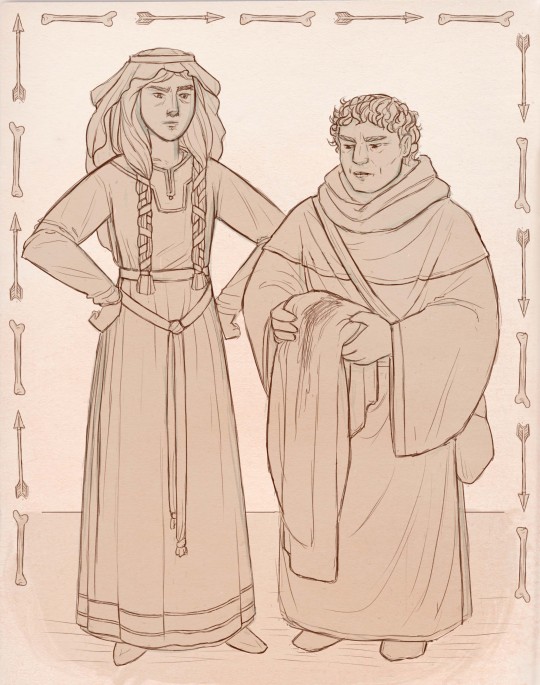
investigating the crime
#really enjoyed the scenes with these two investigating the murder#i still haven't quite finished bc I took a break to doodle this one but#!#I may color this at some point but I could be bothered tonight afjdsgjhkjd#thoughts#a morbid taste for bones#brother cadfael#my art#sorry abt whatever I've done with the medieval clothing btw#my knowledge of it is very general#I'm still not quite satisfied with his look but oh well#I like how sioned turned out though
111 notes
·
View notes
Text
Detective Deathmatch: Round One, Match Nineteen
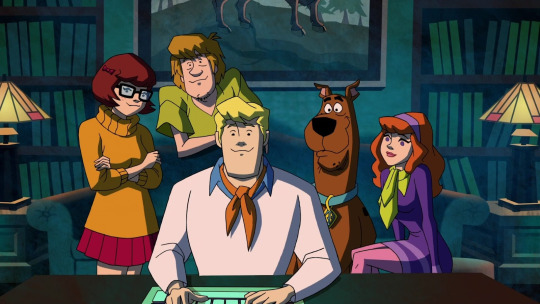

Mystery Incorporated (Scooby Doo) vs Cadfael (Cadfael Chronicles)
#detective deathmatch#fred jones#daphne blake#velma dinkley#shaggy rogers#mystery inc#mystery incorporated#scooby doo#cadfael#brother cadfael#cadfael chronicles#round one
48 notes
·
View notes
Text
Watching 1982 Hunchback of Notre Dame after Cadfael is one very weird experience.
Brother Cadfael sure had undergone some odd character development 😅
I love David Suchet as Clopin though and I definitely approve of this version of Phoebus.
#bit of an anticlimactic death for Frollo though. i don't mind the alternate ending as such but it felt a bit rushed#the hunchback of notre dame#notre dame de paris#derek jacobi#david suchet#the hunchback of notre dame 1982#clopin trouillefou#claude frollo#brother cadfael#cadfael chronicles
7 notes
·
View notes
Text
He looked down, flashing out of his preoccupation with a sudden mischievous smile, combed the fingers of one hand through the hedge of bushy greying hair that rimmed Cadfael’s sunburned tonsure, leaving it bristling like thorn-bushes, snapped a finger painfully against the nut-brown dome between, and took his departure with his usual light stride and insouciant bearing, which the unwary mistook for the mark of a frivolous man. Such small indulgences he was more likely to permit himself, strictly with friends, when he was engaged on something more than usually grave.
Cadfael watched him go, absently smoothing down the warlike crest Hugh had erected.
Saint Peter's Fair. Ellis Peters. 1981.
15 notes
·
View notes
Text
........totta kai oon samaa mieltä siitä että murhaajan ei tarvi olla salapoliisitarinassa aina se Suurin Salaisuus, ratkaistava mysteeri voi olla myös se miten se teki sen tai miksi, mutta... tää cadfael-tarina koettelee mun hermoja silti. rukoilen polvillani et lopussa paljastuisi ettei se hahmo ollutkaan se murhaaja et olis ees joku yllätysmomentti
#ARVASIN SEN TAPPAJAN JO SEN ENSIESIINTYMISESTÄ#“huh. en tiedä kenet toi tappaa mut jonkun kuitenkin”#brother cadfael
15 notes
·
View notes
Text

A Morbid Taste for Bones has been getting me through my lunch breaks the last couple weeks.
14 notes
·
View notes
Text
look, if i’m not supposed to think there’s a little ~longing~ from brother cadfael towards hugh beringar, why did you make cadfael stare at beringar’s eyes and lips, ellis
4 notes
·
View notes
Text
Cadfael, the hero of my youth. The medieval Sherlock Holmes in search of truth was a huge influence to me in my law career. His humanity and his wisdom have helped me to grow up. In addition, his anti-conformist personality and his scientific knowledge make him a pioneer In a society frozen by the beliefs and superstition. He is a man beyond his time as a forensic scientist and investigator. Derek has a great gift to play masterfully ordinary men who have extraordinary destinies. He gives to his character a bright melancoly that touches us to heart. His performance has left me indelible memories. What he does In this part is just brilliant.

#derek jacobi#brother cadfael#ellis peters#edith pargeter#great british actors#british legends#medieval detective
13 notes
·
View notes
Photo
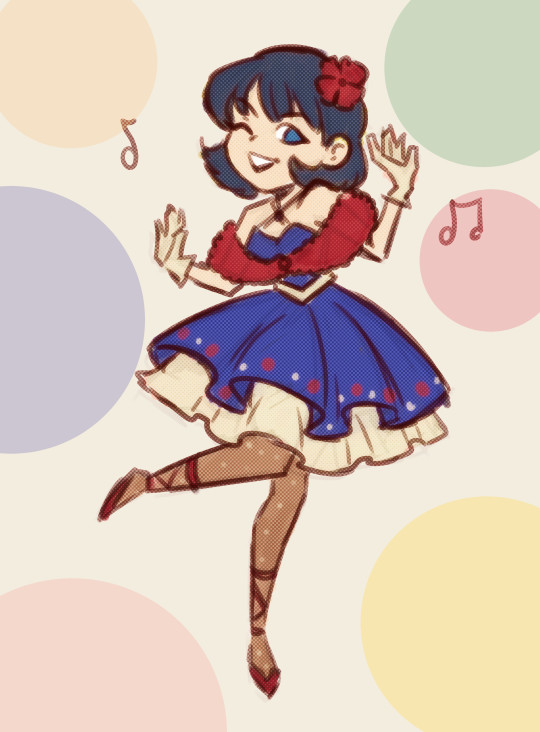
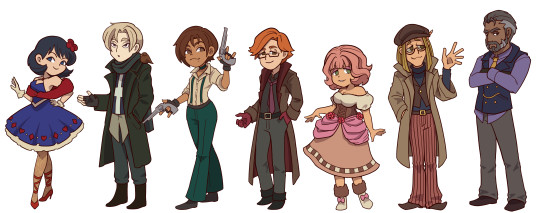
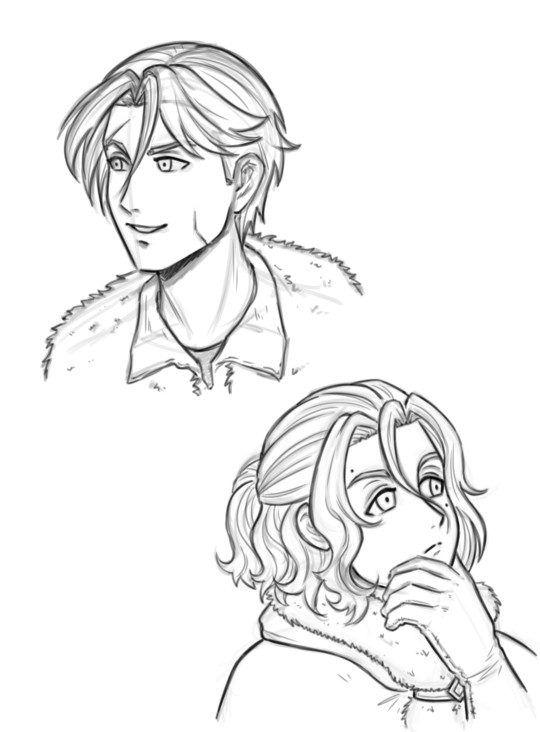


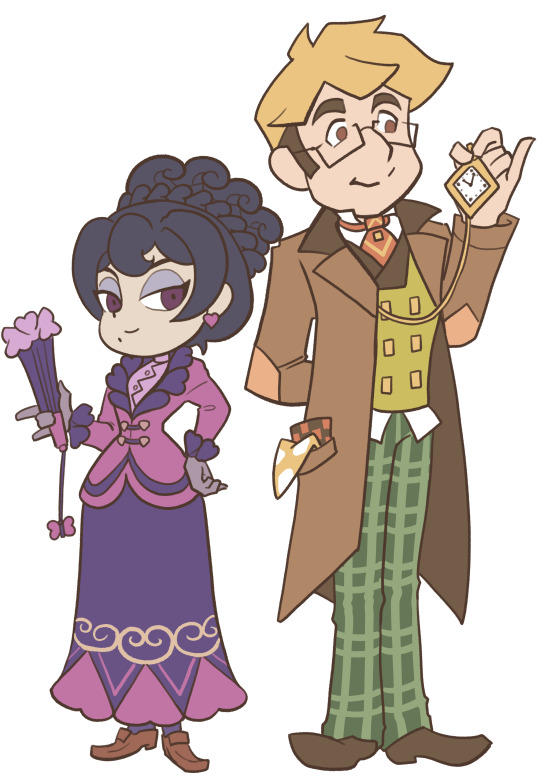
I miss deviantArt some day. Truly, I do. I used to be able to post art, post ideas, share stories, characters and really connect with people. It was easy to see their art, characters, stories, and leave comments that would spiral out of control into big discussions that would last weeks.
So, this is my attempt to restore what I loved about deviantArt in my Tumblr. I’ll probably add links, snippets and resources about the stuff I’ve learned about stories, characters, world building & game design later. I’ll leave this opening post as this: I love creating, I love my characters, I love the challenges that comes with it all. I’m happy to share my thoughts and happier to share my knowledge to help others.
I love fantasy, I love strategy RPGs, I love detective fiction, I love spy fiction and thrillers. I want to create more and I want to help others create more too.
#i just love stories dammit#witcher#suikoden#fire emblem#stormlight archives#dresden files#brother cadfael#sherlock holmes#maigret#I LOVE IT ALL
20 notes
·
View notes
Text
“Girl,” said Cadfael, breathing in deeply, “you terrify me like an act of God. And I do believe you will pull down the thunderbolt.”
— The Devil's Novice (Ellis Peters)
#book quotes#historical fiction#mystery fiction#ellis peters#edith pargeter#the cadfael chronicles#the devil's novice#brother cadfael#terror
13 notes
·
View notes
Text

Brothers Oswin and Jerome are about the drop the coldest album of 1137.
3 notes
·
View notes
Text
Re-reading Cadfael.

39 notes
·
View notes